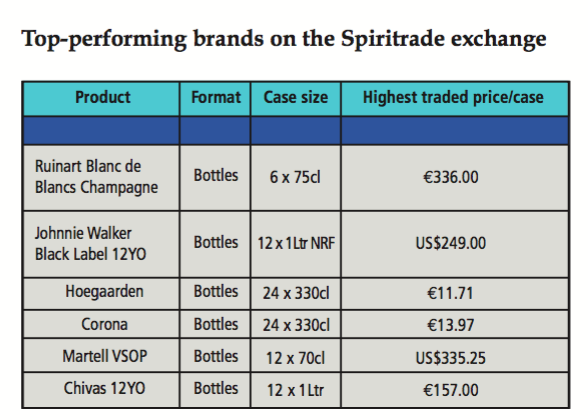How Spiritrade is shaping the future of drinks trading
Spiritrade has revolutionised the way that small businesses can compete with big players and has become an indispensable daily trading tool for drinks-industry professionals.

In the past, trading spirits, wines, beers and soft drinks was a complicated business. Brand owners, often unable to find a buyer, ended up sitting on dead stock, or worse, destroying it and increasing their carbon footprints by doing so. Retailers and wholesalers, meanwhile, faced the opposite challenges. They couldn’t find the right stock at the right time, or buy it at the right price.
Keen to usher in a new world of drinks trading, Spiritrade launched in 2019, and in a short space of time, its trusted B2B marketplace has become an indispensable daily trading tool for drinks-industry professionals around the world – from brand owners, distributors and traders to large supermarket groups.
Over the past year Spiritrade has received a high level of interest from smaller players in the industry who find it hard to compete with the larger drinks companies because of credit challenges and minimum-order quantity requirements, and as a result have become reliant on the Spiritrade platform to buy and sell stock across the world.

“The archaic business methods of the large brand owners has led the smaller businesses to increasingly trade in the secondary wholesale market,” says Andrew de Lavis-Trafford, Spiritrade’s Global Head of Trade. “The massive flaws in the drinks industry have been affecting all drinks businesses due to strong concerns around supply; Spiritrade is now solving these issues,” he says.
“Large stockholders are under pressure due to systemic poor purchasing, leaving them with millions in dead stock and continued pressure from large brand owners to purchase excess amounts of stock to secure lower pricing.” He highlights the fact that it is beneficial for buyers and sellers to use the Spiritrade platform “to avoid significant price swings” in a market where prices show increased volatility.
De Lavis-Trafford believes the price discrepancy between the primary and secondary markets has become unsustainable, and that stockholders now prefer to buy through the secondary market due to product availability, attractive prices and not having to deal with brand owners’ “unrealistic purchasing expectations, archaic ordering processes and overly complicated invoicing systems”.
He has also noticed a rising demand in the industry for a more simplified buying process. Spiritrade is able to cater to that need. The company’s inventory, now worth over £65 million, is being utilised daily, with products being added from over 70 countries.
“Trading on the Spiritrade exchange helps to keep a business cash rich and more efficient by not purchasing excess stock, which may end up being destroyed or heavily discounted,” he says. “Spiritrade provides a seamless solution from registering to transacting. The exchange is a 24/7 solution that enables buyers and sellers to have access to an unrivaled portfolio at a global price level.”
Spiritrade has ambitious plans to grow both its inventory and member numbers. “As our global visibility continues to grow and more members join, we are aiming to have the largest and most comprehensive inventory in the world, so that our members can service both their domestic and international customers,” says de Lavis-Trafford.
“We are the only business offering a solution to solve the multiple challenges the industry faces, from stock wastage to driving greater transparency in pricing.” Among the top-performing brands on the exchange are: Ruinart Blanc de Blancs, Johnnie Walker Black Label 12 Year Old, and Martell VSOP.
